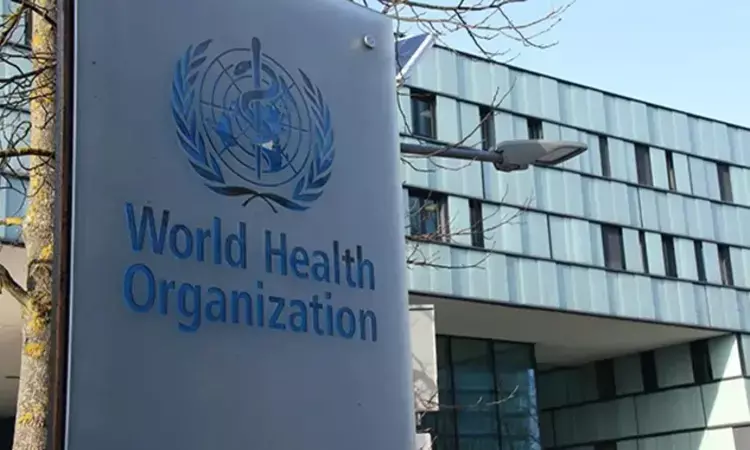- Home
- Medical news & Guidelines
- Anesthesiology
- Cardiology and CTVS
- Critical Care
- Dentistry
- Dermatology
- Diabetes and Endocrinology
- ENT
- Gastroenterology
- Medicine
- Nephrology
- Neurology
- Obstretics-Gynaecology
- Oncology
- Ophthalmology
- Orthopaedics
- Pediatrics-Neonatology
- Psychiatry
- Pulmonology
- Radiology
- Surgery
- Urology
- Laboratory Medicine
- Diet
- Nursing
- Paramedical
- Physiotherapy
- Health news
- Fact Check
- Bone Health Fact Check
- Brain Health Fact Check
- Cancer Related Fact Check
- Child Care Fact Check
- Dental and oral health fact check
- Diabetes and metabolic health fact check
- Diet and Nutrition Fact Check
- Eye and ENT Care Fact Check
- Fitness fact check
- Gut health fact check
- Heart health fact check
- Kidney health fact check
- Medical education fact check
- Men's health fact check
- Respiratory fact check
- Skin and hair care fact check
- Vaccine and Immunization fact check
- Women's health fact check
- AYUSH
- State News
- Andaman and Nicobar Islands
- Andhra Pradesh
- Arunachal Pradesh
- Assam
- Bihar
- Chandigarh
- Chattisgarh
- Dadra and Nagar Haveli
- Daman and Diu
- Delhi
- Goa
- Gujarat
- Haryana
- Himachal Pradesh
- Jammu & Kashmir
- Jharkhand
- Karnataka
- Kerala
- Ladakh
- Lakshadweep
- Madhya Pradesh
- Maharashtra
- Manipur
- Meghalaya
- Mizoram
- Nagaland
- Odisha
- Puducherry
- Punjab
- Rajasthan
- Sikkim
- Tamil Nadu
- Telangana
- Tripura
- Uttar Pradesh
- Uttrakhand
- West Bengal
- Medical Education
- Industry
Covid-19 patients to be given 2 doses of Pfizer vaccine in 21-28 day gap: WHO

The FDA warned that there was a "potential for harm" if people believed they were protected against COVID19 by a first dose of Pfizer's vaccine for longer than available data demonstrate.
New Delhi: The World Health Organisation (WHO) on Tuesday said that COVID-19 patients should be given two doses of the Pfizer/BioNTech vaccine within a period of 21-28 days.
Alejandro Cravioto, chairman of WHO's Strategic Advisory Group of Experts on Immunisation (SAGE), told media persons during a news briefing that two doses are needed to make the vaccine more effective.
Meanwhile, CBS News reported that the US Food and Drug Administration has suggested UK's drug regulator may be gambling with public safety "by expanding the time gap between administration of the first and second doses of Pfizer's coronavirus vaccine beyond that proven safe and effective by trial data".
The FDA warned that there was a "potential for harm" if people believed they were protected against COVID-19 by a first dose of Pfizer's vaccine for longer than available data demonstrate.
Any dose adjustments could be evaluated in clinical trials, FDA Commissioner Stephen Hahn and Peter Marks, the director of the Center for Biologics Evaluation and Research, said in a statement.
"However, at this time, suggesting changes to the FDA-authorised dosing or schedules of these vaccines is premature and not rooted solidly in the available evidence," they said.
Moderna's COVID-19 vaccine takes two doses given 28 days apart, and the Pfizer/ BioNTech COVID-19 includes two doses given 21 days apart, till now.
Data from the clinical trials suggested that people had some protection against Covid-19 after the first shot, but the trials were not designed to test if only one dose worked, reports The Verge.
In the US, over 15 million doses of the COVID-19 vaccines have been distributed, but only 4.5 million people have received their first dose.
Also Read: WHO plans to combat 20 neglected diseases as Covid-19 strains healthcare
Medical Dialogues Bureau consists of a team of passionate medical/scientific writers, led by doctors and healthcare researchers. Our team efforts to bring you updated and timely news about the important happenings of the medical and healthcare sector. Our editorial team can be reached at editorial@medicaldialogues.in.


